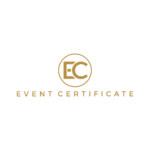Have you ever been ghosted by a client? If you have, you probably know how confusing ghosting feels. It also feels a little hurtful, like you’ve done something wrong but you can’t quite put your finger on what exactly it is.
Ghosting clients are outside of your control, yet you don’t know what you did wrong and have no closure from the client.
I’m sharing four strategies you can use in your event and wedding planning business to stop clients from ghosting you and most importantly, how to better manage these kinds of situations.
When clients ghost you, there’s probably a multitude of reasons why this happens. They could have just been shopping around and checking out different planners. It could be that your services didn’t meet what they were looking for, or maybe they’re just people who are not responsible with following up. The point is, it could be anything. But whatever the reason, I want to share the best strategies that can help you handle this situation.
Ghosting Tip #1: First Contact
Think about what a client’s experience is like when they first encounter your business. Are you responding to their questions and emails professionally? Or are you engaging and having conversations rather than responding with email templates?
An impressive first experience helps to provide clients with a sense of what it would be like to work with you, should they hire you.
If your first contact process is not impressing them, you need to review your process and look at the areas that you can improve.
This is the perfect time to take a look at your workflow and how a client follows that process from beginning to booking.
Check out our detailed tutorials on Dubsado, HoneyBook and Aisle Planner for guides on different ways you can improve your processes and wow your potential clients.
Ghosting Tip #2: Gathering Information
Do you know those 10+ page questionnaires that wedding planners like to send out to clients before they hire them? Let’s talk about how this might not be beneficial to your business..
I get it, the questionnaires are useful for collecting as much information as possible from a potential client about themselves and their upcoming event. But these questionnaires can also act as a barrier, especially if the client is just trying to inquire about your services and pricing and are not ready to book you immediately.
The reason?
You’re probably not the first wedding vendor that the client has encountered. For example, if they contacted a venue and a photographer, they have already received questionnaires asking for all this information.
And if they contacted multiple wedding planners, then that means they would have also received another set of questionnaires. And this is my assumption based on them doing a minimum amount of work.
What I encourage you to do instead is get as much information from the client as needed, but try to make it as easy as possible for them to get it to you.
When you first meet with the client at your consultation or over the phone, that’s where you can get the majority of the information from them, instead of sending them a 16-page questionnaire, the minute they ask your prices.
Not everyone enjoys the experience of sitting and regurgitated information over and over again, especially if you could get the same amount of information in a two to five-minute call than you can in a 16-page questionnaire.
Ghosting Tip #3: Give them a Deadline
When I meet planners and I talked to them about their process and clients ghosting them, what they’ll often say is that “I have so many people contacting me, but they never responded to my emails”. And what I often ask them is “what was the deadline that you gave them?”
And do you know what I often get back? A blank stare.
If you are not giving your potential clients a deadline, how do you know when they have missed it?
For example, this can be anything from a deadline on your proposal where you’ll say that “you have until this [date] until the proposal will no longer be valid”. Or you can also give them a deadline to respond: “If I don’t hear from you in a week, I’ll just assume that you’ve decided to go with someone else.”
Whatever that is, you need to give potential clients a deadline. That will be your marker to know if they’ve made a decision or not and whether you can call this a lost lead.
Ghosting Tip #4: The Follow-up
Once you’ve established a deadline process you now have a marker that triggers an action. What I mean by that is that once a deadline has passed, you know that you can now follow up with the client.
Here’s an example of an email template you can use to follow up (you can also find more samples like these on HubSpot:
Hi [Name],
I wanted to follow up on my proposal to see if you had any questions or needed any customization. I’m happy to hop on a call with you to answer any questions you might have. Here is a link to my calendar if you would like to speak to me directly.
[Signature]
If you don’t hear back from the client you can also follow up to advise that you’re closing the file:
[First Name], I haven’t heard back from you since our last conversation. I know life gets busy, do let me know if you have any questions.
If I don’t hear back from you by [INSERT DATE], I’ll assume you’ve decided to go in another direction and your event date will be released to other clients.
Your follow up is greatly appreciated.
[Signature]
Without Deadlines
Without deadlines, you’ll often end up in limbo wondering what happened and if the client is moving forward or not.
If you’ve followed up with a client and haven’t heard from them, it’s okay to pack it in and move on to the next client because not every client is going to hire you and some will just not follow up.
Conclusion
What’s most important is that you have processes in place to guide clients seamlessly through your booking process and that your workflow is optimized for securing a booking or confirming that a lead has been lost.



Pingback: 3 Steps to Winning your Wedding Client Consultations - EVENT PLANNING CERTIFICATE